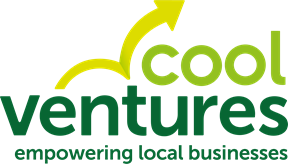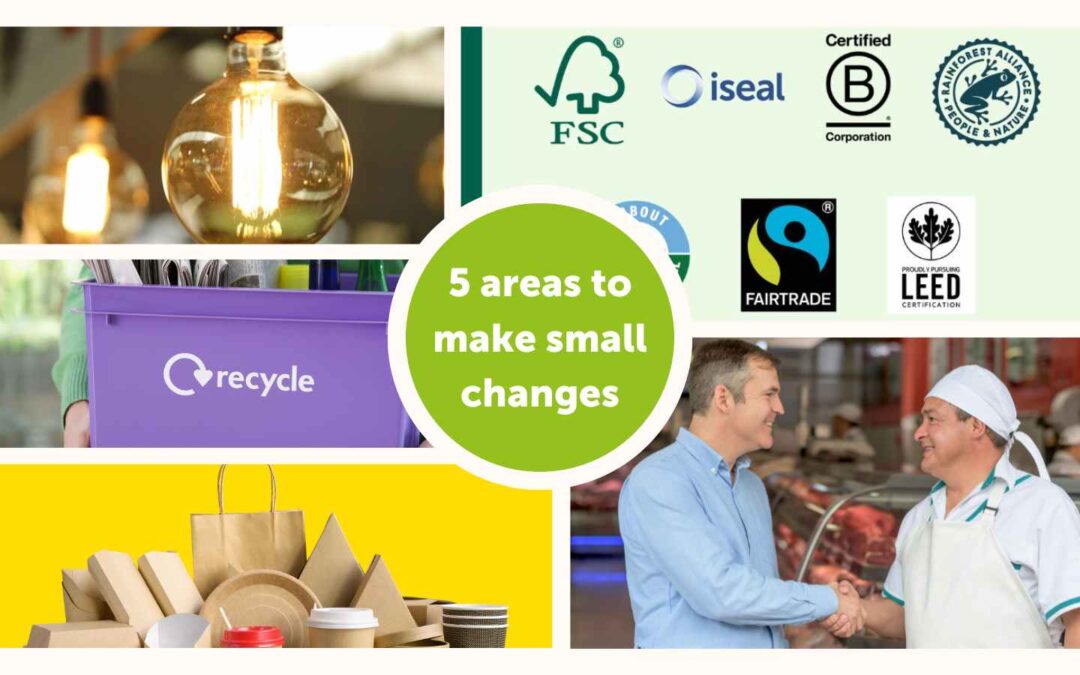As small businesses and individuals, we may not think we can make an impact when it comes to the great existential challenges associated with Climate Change, environmental destruction, and biodiversity loss.
Living and working more sustainably is not about being perfect, it’s about all of us doing something. It’s amazing how quickly small acts add up if enough people do them.
It can be disheartening when you see a small number of people and businesses causing the majority of environmental damage, but we can only control our own choices – not everyone will, but you can still choose to do the right thing (and also potentially save money!)
Here are 5 areas you can control, where small changes can make a big difference:
- Energy Efficiency
We can all do small things to save energy. Whether that’s turning things off at the wall when you’re not using them, or replacing your lightbulbs with low energy LEDs (then remembering to turn the light out when you leave the room!).
When you replace appliances or buy new equipment, do some research to find the most energy efficient, it’s easier to spot these with traffic light systems on labelling. They may cost a little more initially, but will cost less to run in the long term.
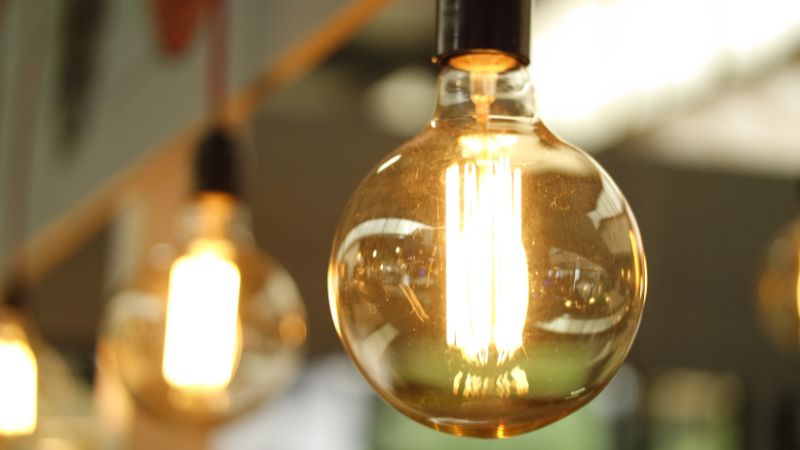
- Carbon Trust – Free advice, funding, and tools to reduce carbon footprint.
🔗 www.carbontrust.com
- Energy Saving Trust – Guidance on reducing energy costs and improving efficiency.
🔗 www.energysavingtrust.org.uk
- Waste Reduction & Recycling
Over the past 50 years or so, we have lived in a world where things are increasingly viewed as disposable. We have created a throwaway society. Humans managed to live for thousands of years without creating as much waste as we do today. We all know we can do better.
But the unrelenting march of capitalism, invention of cheap plastic, and successive governments all over the world implementing policies to increase GDP though the making and selling of yet more and more stuff has created a culture of convenience.
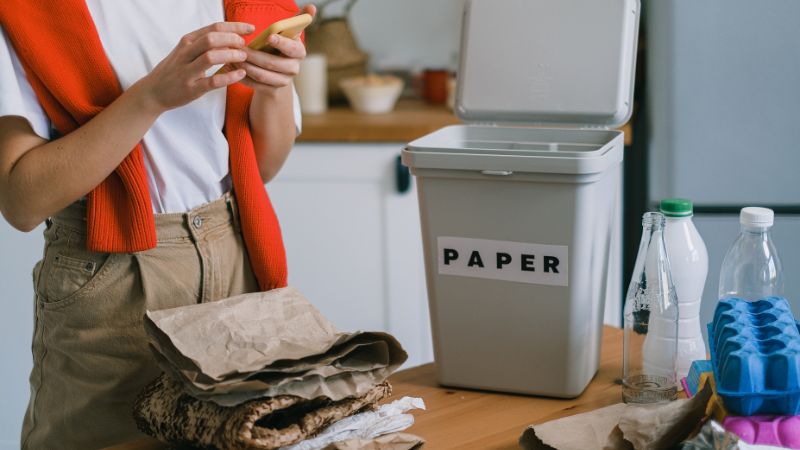
We often have little other choice or are restricted by the high cost of alternatives. Rather than shouldering that guilt as individuals, we have the power as consumers, and also as the businesses of the future to do things differently.
Wasting fewer resources, reusing, repairing and repurposing things can be an opportunity to create better products and services – saving money and the planet by giving people sustainable, waste free, choices.
- WRAP (Waste and Resources Action Programme) – Support for reducing waste and improving recycling.
🔗 www.wrap.org.uk
- Green Certifications & Funding
Want to make it official? You can show the world that your core values as a business are sustainable by accrediting your business with a green certification. You know you’re making a difference, it can be a real boost to your business to have that recognised and rewarded by external verification.
Not a money saver, but a provable way to demonstrate you mean better business; which can be a lucrative opportunity to grow your business.
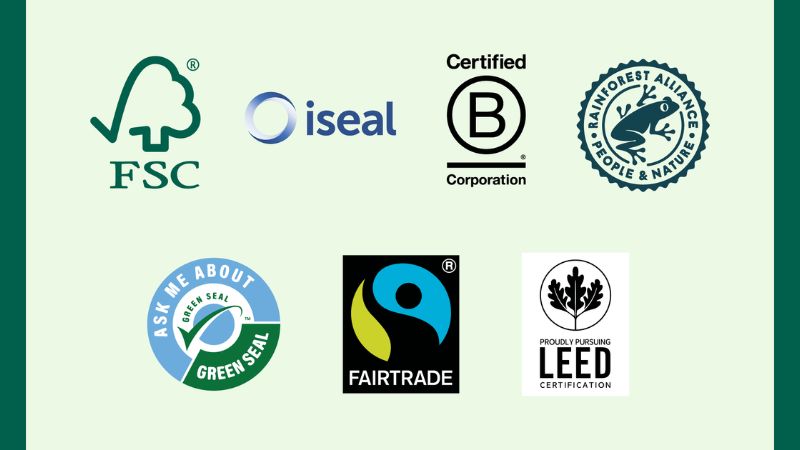
- Green Small Business – Affordable sustainability certification for SMEs.
🔗 www.greensmallbusiness.com
- Local Support for Sustainability – Funding and support to create a eco-friendly businesses.
🔗 https://www.westofengland-ca.gov.uk/growth-hub/
- B Corp UK – Certification and resources for businesses committed to sustainability.
🔗 www.bcorporation.uk
- Sustainable Supply Chain
As small, local businesses, you are probably already using more sustainable suppliers without even realising it. The best way to reduce your businesses impact on the environment is to use local suppliers. For many of us, we do this without really thinking about it by growing our business connections locally and working alongside other traders in our communities. For food businesses that could mean choosing local, seasonal, fresh produce. For a florist it could be teaming up with a community farm or sustainable local flower farm.
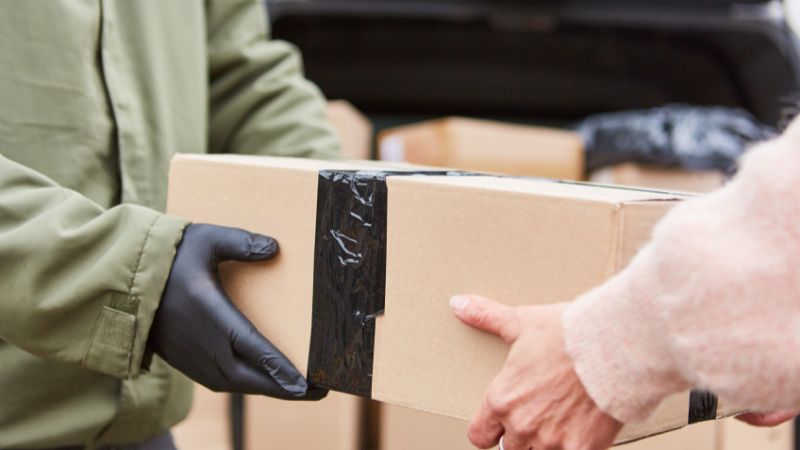
You can choose to keep the money circulating in your local community, benefiting other small businesses and your local area, or you can choose convenience and putting that money into the pockets of shareholders.
Not only choosing how and where you spend your money, but also where you bank and invest can have an impact far greater than your individual reach.
Choosing who you do (and don’t) spend your money with, is like choosing how you vote with your money.
- Eco-Friendly Packaging
Packaging is how most of our waste is generated. As a small business you can choose to package your products and services more sustainably (i.e.: not in disposable plastic). But also, ask yourself if it needs packaging at all? The best way to reduce waste is not to create it in the first place. If it really does need to be packaged, is there a way you can make it reusable?
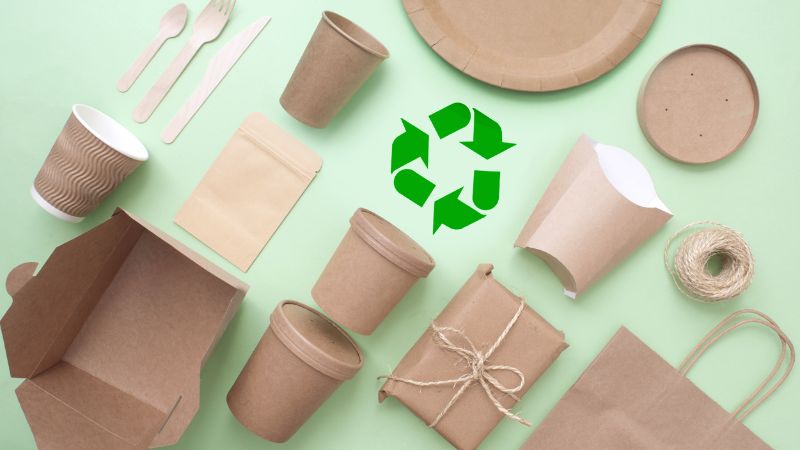
Remember the waste hierarchy. Recycling is the last resort – humans already create more waste that can ever be recycled, recycling is not a solution – often it only adds to the existing problem of waste.
When you buy in products and services to your business, also consider the packaging it comes in. Choose suppliers and products that have minimal, or better still no packaging, biodegradable or reusable alternatives.
- The UK Plastics Pact (WRAP) – Guidelines for reducing plastic use and switching to sustainable packaging.
🔗 www.wrap.org.uk/plasticspact
💡 Take Action: Start small—reduce energy use, source responsibly, and take your customers along on your sustainability journey.
